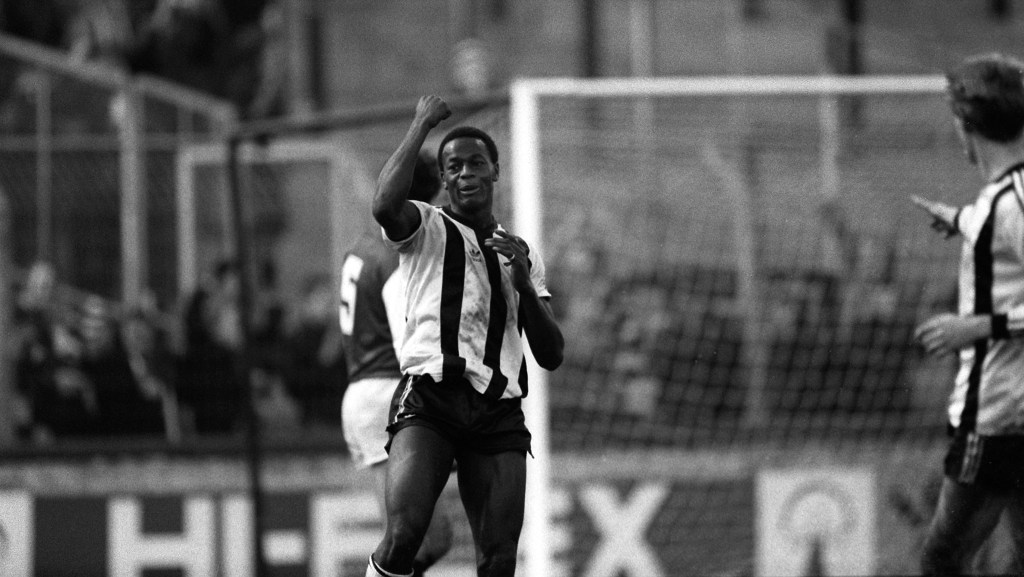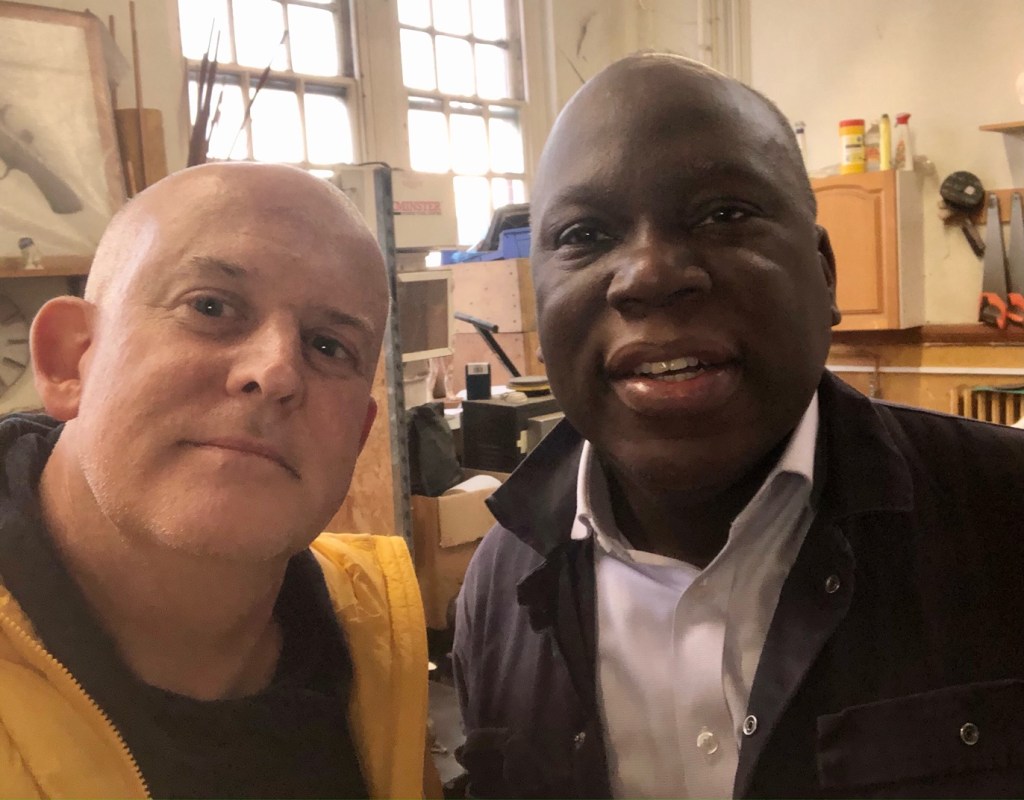‘There should be hundreds of out gay players’: Queer football fans’ bid to honour Justin Fashanu

A mural celebrating the late Justin Fashanu, Britain’s first openly gay professional footballer, has been unveiled in Norwich. (Getty/ Allsport UK)
LGBTQ+ football fans are rallying to erect a statue in honour of late footballer Justin Fashanu, the first out gay player in the men’s professional game.
Fashanu was one of football’s brightest stars – at only 20 years old, he became the first Black British player to land a transfer worth £1 million.
Then, in 1990, he then became the first active professional men’s footballer in the world to come out as gay, on the front page of The Sun. But the backlash he received led to him taking his own life eight years later.
Now, the Justin Fashanu Statue Campaign, created by the Proud Canaries – Norwich City Football Club’s LGBTQ+ fans and friends group – wants to memorialise Fashanu to raise LGBTQ+ visibility in men’s football.
Its fundraiser, which has been supported by former footballer Gary Lineker and actor Stephen Fry, has so far raised more than £3,000 of its £150,000 target.
Professor Andrew Reynolds, leader of the campaign, told PinkNews the point of the project is that “symbolism and visibility is a huge driver of change”.
“It’s a role modelling effect of remembering the first man who came out, and who was Black of Nigerian descent and from Norfolk,” said Reynolds.
Reynolds said Fashanu is often remembered as being important for “three things”.
“One, he was a great footballer. Two, he was one of the handful of Black British footballers who broke a barrier in the ’70s and ’80s against a lot of racism.
“Three, he was the first, and for 32 years, the only professional footballer to come out as gay.
“He represents this idea of who’s allowed to play the game”.
Reynolds said Fashanu’s legacy is that “he was able to break that ceiling”.
“But sadly, the negative legacy is that the ceiling was repaired,” he added.
“Despite his courage, we still haven’t changed the dynamic to a point where football looks anything like the rest of society.”

Until 2022, there hadn’t been an out gay player in men’s top-flight football in the UK. Earlier this year Jake Daniels, of Blackpool FC, became the first active player since Fashanu to come out.
“The fact is we still have really zero out gay footballers, outside of Jake Daniels, when we should expect hundreds of out gay and bisexual men playing football,” Reynolds added.
He condemned the tabloid press for being as “equally bad” these days as they were in Fashanu’s.
Today they make a “sensation out of the hunt for gay players”, he said.
“In Justin’s day, they were just dismissive and homophobic and contemptuous.
“Now The Sun is constantly titillating its readers with the possibility of Premier League player will come out”.
If successful, the statue, which will be sculpted by artist Taslim Martin, will be erected on the approach to Norwich’s Carrow Road ground. It would recreate Fashanu celebrating with one arm pointed to the sky after his famous goal for the Canaries against Liverpool in 1980.
Appealing for donations, Reynolds said: “The LGBTQ+ and ally community needs to step up because it won’t happen without queer people in Britain giving a little bit and getting their friends to do so also.”

Reynolds pointed out that there isn’t currently a public statue of a Black gay man in Britain.
“If you don’t see someone like you in a position of validity, a legitimate position in society, you don’t think you’re allowed to be that,” he said.
Following his death, Fashanu’s niece, Amal Fashanu, founded the Justin Fashanu Foundation, which focuses on tackling racism and prejudice in football in support of mental health.
Reynolds said the foundation has supported the campaign, and that he hopes the project will continue the discussion about inclusion in football following the controversial Qatar World Cup.
“The statue is an opportunity for us to keep pushing the boulder up the hill to make things better.”
Following his coming out, Fashanu was subjected to heavy discrimination and backlash. Then, in 1998, he was accused of sexual assault by a 17-year-old boy in Maryland, US.
Although the legal age of consent was 16 – and Fashanu maintained that the relations were consensual – homosexual acts were still illegal in Maryland.
Fearing his sexuality would prevent a fair trial, Fashanu ended his life on 2 May, 1998 at only 37 years old.
The late footballer will have his life honoured in new ITV drama, Fash. It follows Fashanu being inducted into the National Football Museum’s Hall of Fame in 2020. A broadcast date has yet to be announced.
Donations to the fundraising page can be made here.

